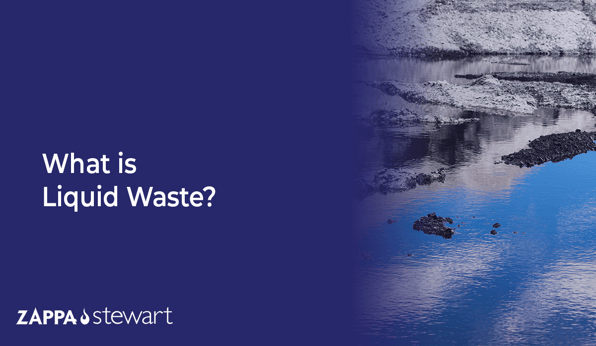Reclaim Waste Fundamentals Explained
Reclaim Waste Fundamentals Explained
Blog Article
The Single Strategy To Use For Reclaim Waste
Table of ContentsLittle Known Questions About Reclaim Waste.Rumored Buzz on Reclaim WasteThe 5-Minute Rule for Reclaim WasteAll About Reclaim WasteThe Only Guide for Reclaim Waste
Check out the types, occurrences, and kinds of fluid waste. Residential sewage waste describes the waste and products from a domestic septic system. This sort of waste is produced by humans in residences, colleges, and other structures. This only consists of septic tanks that have a drainpipe field. The proper management and disposal of domestic sewage waste require liquid waste to be transferred to a sewer treatment plant where the appropriate methods and devices are applied to cleanse and throw away waste.
Commercial waste usually includes prospective hazards, such as flammable products or a combination of liquid and solid waste items, and requires an advanced and comprehensive disposal process. The disposal of industrial waste commonly involves the filtering of waste before transport to guarantee safe and appropriate disposal. Industrial waste is produced from by-products and drainage of commercial processes and manufacturing.
This kind of waste can not utilize the very same sewer management transportation or processes as septic or industrial fluids. The hazardous waste monitoring procedure calls for the inspection and testing of liquid waste before it undergoes the disposal process (industrial wastewater treatment). Runoff waste is the liquid waste that comes from runoff and excess stormwater in highly inhabited areas or cities
Drainage waste can cause contamination and flooding if not managed appropriately. Making sure appropriate waste management can prevent calamities and minimize environmental injury.
Little Known Questions About Reclaim Waste.
Get in touch with PROS Services today to learn more about our waste administration and disposal solutions and the proper ways to take care of the liquid waste you create.
(http://www.place123.net/place/reclaim-waste-laverton-north-vic-australia)This supposed 'wastewater' is not only a vital source however, after treatment, will certainly be launched to our land, waterways or the sea. Used water from toilets, showers, baths, kitchen sinks, washings and industrial processes is understood as wastewater.

water made use of to cool equipment or clean plant and tools). Stormwater, a type of wastewater, is runoff that moves from agricultural and city locations such as roof coverings, parks, yards, roadways, courses and rain gutters into stormwater drains, after rainfall. Stormwater streams unattended directly to neighborhood creeks or rivers, at some point reaching the sea.
The smart Trick of Reclaim Waste That Nobody is Talking About
In Queensland, most wastewater is treated at sewage therapy plants. Wastewater is carried from residential or commercial websites with a system of drains and pump terminals, recognized as sewerage reticulation, to a sewage treatment plant.
The Department of Natural Resources recommends city governments about managing, operating and keeping sewage systems and therapy plants. In unsewered locations, neighborhood federal governments may require householders to mount individual or household sewage treatment systems to deal with residential wastewater from toilets, kitchen areas, bathrooms and laundries. The Division of Natural Resources authorizes using home systems when visit they are proven to be effective.
In some brand-new communities, treatment of some stormwater to get rid of trash, sand and gravel has actually started utilizing gross pollutant catches. Wastewater treatment happens in four phases: Gets rid of strong matter.
Makes use of small living organisms recognizes as micro-organisms to damage down and remove remaining dissolved wastes and fine bits. Micro-organisms and wastes are incorporated in the sludge.
The 15-Second Trick For Reclaim Waste
Nutrient elimination is not offered at all sewer therapy plants due to the fact that it requires expensive specialized tools. Clear fluid effluent generated after therapy may still have disease-causing micro-organisms - liquid waste disposal.

This normally indicates wastewater has to be dealt with or impurities removed prior to it can be released to waterways. The majority of wastewater moves right into the sewerage system. Under the Act, city governments carry out approvals and licences for eco appropriate activities (Periods) including wastewater releases that might have a local influence. The department administers authorizations and licences to Periods including wastewater releases that may have a regional or statewide influence.
The Ultimate Guide To Reclaim Waste
Surveillance provides valid information about water high quality and can validate that permit problems are being met. The information gotten via monitoring gives the basis for making water high quality choices.
Report this page